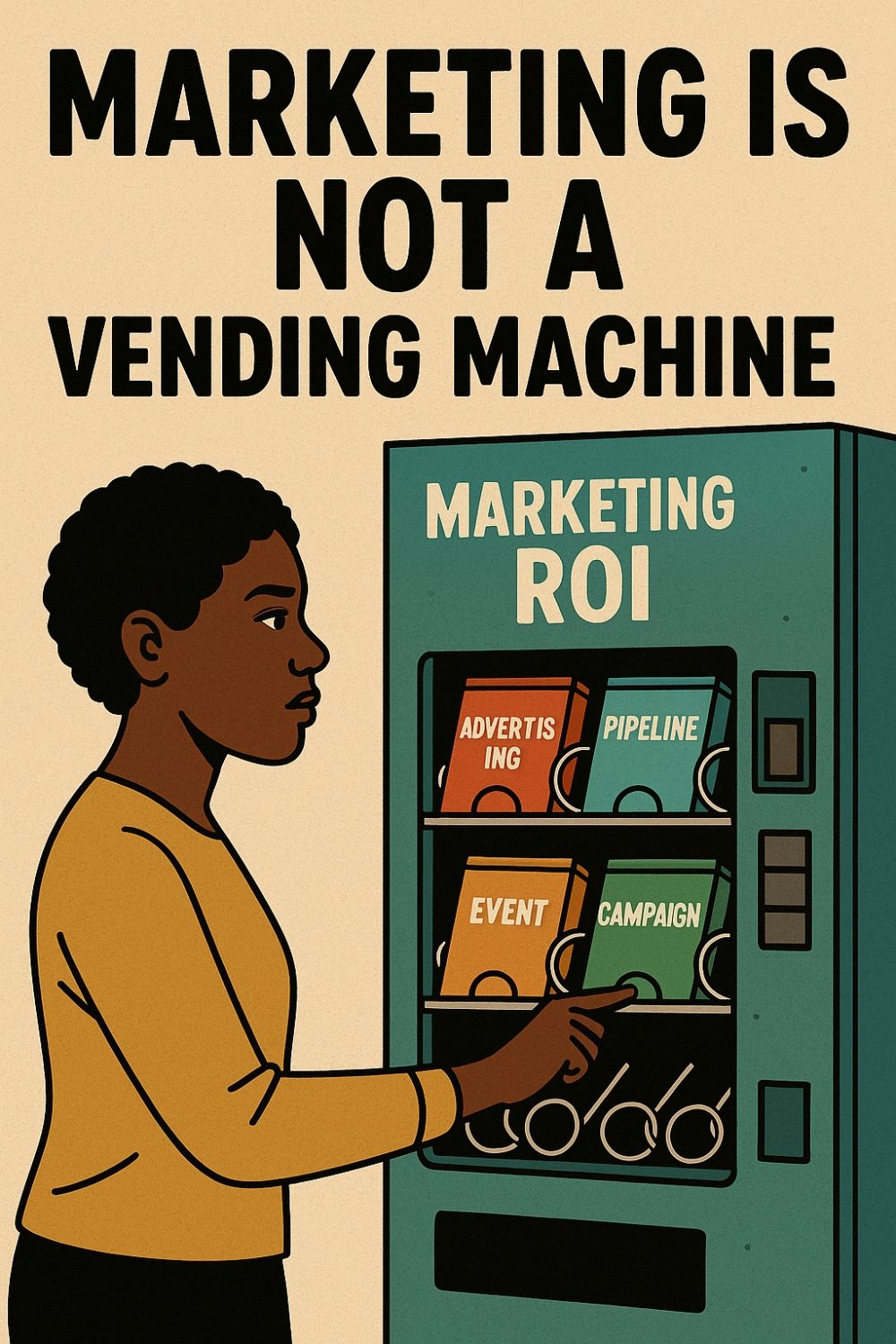The Gist
-
Embrace uncertainty boldly. Marketing works in unpredictable systems where control is an illusion and adaptability matters most.
-
Experimentation over precision. CMOs must replace rigid, deterministic plans with agile experiments and ongoing learning.
-
Leadership must evolve. Modern marketing leadership demands risk-taking, collaboration and a focus on long-term resilience.
As a business strategist trained in systems thinking, I find many of the ideas in Kathleen Schaub’s “Marketing in the Real World” familiar. They are also refreshingly necessary, especially for those working in marketing organizations.
(Editor's note: BTW, did you know Kathleen's a CMSWire Contributor?)
While I’ve spent much of my career inside marketing organizations, I’ve also seen how digital tools seduced many into believing that marketing had become a purely scientific pursuit. The creative tension between art and science gave way to dashboards and deterministic campaigns. But Schaub argues that it's time to stop, reflect and introduce agility, experimentation and critical thinking into the marketing function.
This isn’t just a theory to me. I once had the privilege of working with a forward-thinking CMO who embraced experimentation as a core principle. We didn't just spray and pray across channels; we also measured, tested and iterated. We evaluated messaging, verticals and buyer behaviors systematically rather than by siloed department goals. This approach moved us from event-heavy, intuition-based marketing to a data-informed discipline grounded in what worked.
Schaub’s central message is clear. The old, industrial-era mindset is rooted in division of labor and false precision, and this no longer serves today’s dynamic marketplace. If anything, marketers should take a page from the CIO playbook and get comfortable deleting what doesn’t work. Marketing needs to move beyond performance theater and embrace the messiness of real-world learning. It’s time for CMOs to think and act more like systems leaders.
Table of Contents
- Marketing is Not a Vending Machine
- CMO Need to Change Their Outdated Thinking
- The Hardest Question Facing Marketing Leaders
Marketing is Not a Vending Machine
Schaub opens her book with a dose of reality many marketing leaders wish wasn’t true. Wouldn’t it be nice if buying more advertising guaranteed a revenue spike, if event attendance reliably forecasted pipeline, or if campaign choices could be evaluated as cleanly as line items in a spreadsheet? Of course it would be.
But, as Schaub emphasizes, this fantasy of predictability, while appealing to CEOs and CMOs alike, has never truly aligned with how marketing really works.
At the core of Schaub’s argument is the stark truth that marketing operates in an environment of growing uncertainty and complexity. Markets are made up of independent, heterogeneous agents whose behaviors are unpredictable and constantly shifting. Outcomes often emerge in swarm-like, nonlinear patterns. Control is distributed. And despite years of trying, marketing ROI remains frustratingly hard to pin down. The search for machine-like control in such a system is misguided and doomed.
Schaub argues that far too many in the C-suite misunderstand marketing's true nature. They manage it as if it's a mechanical process, governed by levers and knobs. But this outdated management paradigm, rooted in industrial-era thinking, no longer works.
Gary Hamel warned of this years ago, and he showed how rigid control had already failed in other parts of the business. It’s time, Schaub insists, to blow these paradigms out of marketing altogether. CMOs must face the reality that predictability is a myth. Clinging to deterministic models only obscures what's happening in the market.
Instead, marketing leaders must embrace the uncertainty, lean into complexity and adopt adaptive models grounded in experimentation and continuous learning. In a world of emergent behavior and distributed influence, control is an illusion, and agility is the new imperative.
Related Article: 3 Moves Leaders Can Make to Improve Marketing Agility
CMO Need to Change Their Outdated Thinking
Marketing is not a cost center. It's an investment function. This mindset shift changes everything in Schaub’s mind. Like any investor, CMOs must accept that no investment guarantees a return. Success requires embracing risk, placing smaller, diversified bets and playing the long game. Expecting perfect forecasts and instant payoffs is wishful thinking in today’s dynamic markets.
CMOs must also think like navigators. They must adjust course frequently based on new data, iterate plans across multiple time scales and balance efficiency with strategic slack. In an uncertain world, rigid precision is a liability. Smart marketers think in probabilities, not certainties. They understand that causes aren’t always linear or discoverable, and they learn to act decisively even when clarity is elusive.
CMOs finally think like ecologists and prioritize organizational health. This means modeling the culture they want to build, nurturing networks over hierarchies and dismantling internal competition that undermines shared success. Teams, as a part of this process, should be reoriented around a consumer-centric mission, with flatter structures, shared power and integrated collaboration across functions.
With these changes made, CMOs need to create robust information systems with cleaner data, radical transparency, better analytics and stronger human-machine partnerships. Agile operations are key. Make work smaller, iterate quickly, simplify processes and use change as a strategic lever. Increase connectivity, establish guiding principles and launch minimum viable projects that create learning.
Finally, it's time to shake off the shackles of industrial-age thinking. Marketing in today’s world demands creativity, adaptability and resilience. CMOs who embrace uncertainty as opportunity rather than a threat will be the ones who thrive.
Related Article: Exploring the Shift in Agile Marketing Practices: What Marketers Need to Know
The Hardest Question Facing Marketing Leaders
These are not incremental shifts. They're foundational changes in how marketing must be led and managed. The real question is whether today's CMOs are ready to abandon the comfort of industrial-age control and embrace a more adaptive, probabilistic and networked approach.
Success will require courage, humility and a willingness to rethink deeply held assumptions. But for those bold enough to make the leap, the opportunity to build agile, resilient and high-impact marketing organizations has never been greater.
Learn how you can join our contributor community.

